Juvenile Vandalism Defenses and Penalties Under Arizona Law
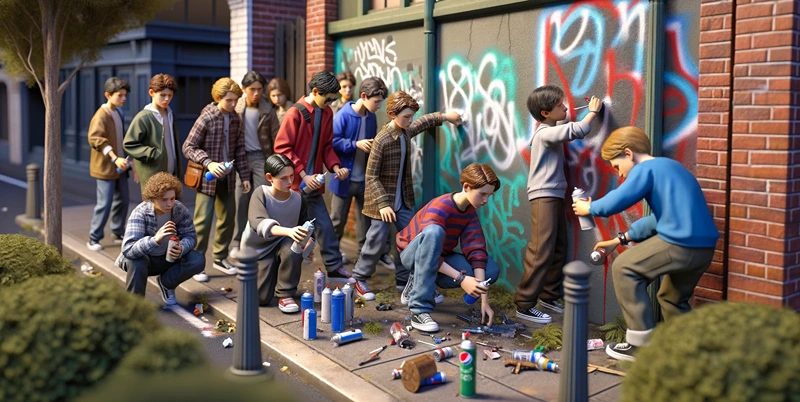
This article discusses the following:
- What is the Definition of Vandalism Under Arizona Law
- Is Graffiti Considered Vandalism?
- Consequences of a Juvenile Vandalism Charge
- What If I Accidentally Vandalized Someone's Property
- How Does the Juvenile Court System Work
- Defense Strategies for Juvenile Vandalism Cases
- Frequently Asked Questions
- How a Criminal Defense Attorney Can Help
In the state of Arizona, individuals under the age of 18 can be held accountable for acts of vandalism that result in damage to personal property.
Arizona's vandalism laws and penalties are designed to deter juvenile delinquency and hold young offenders accountable for their actions. Understanding the legal consequences and available defenses is important for any individual facing charges related to juvenile vandalism.
Kolsrud Law Offices is a prominent law firm in Arizona specializing in defending individuals facing vandalism and criminal mischief charges. If you are facing juvenile vandalism charges or a parent of a child facing charges, we offer a free initial consultation to discuss your case.
Contact us today to schedule a
FREE CONSULTATION and learn
how we can help you.
What is the Definition of Vandalism Under Arizona Law
Under Arizona law, vandalism is commonly referred to as "criminal damage" and is defined under A.R.S. § 13-1602. The statute states that a person commits criminal damage by recklessly:
➣Defacing or damaging property of another person.
➣Tampering with property to substantially impair its function or value.
➣Tampering with the property of a utility.
➣Parking any vehicle in such a manner as to deprive livestock of access to the only reasonably available water.
➣Drawing or inscribing a message, slogan, sign, or symbol that is made on any public or private building, structure, or surface, except the ground, and that is made without the permission of the owner.
It's important to note that the severity of the offense can vary based on factors such as the extent of the damage and whether the act was committed in a moment of recklessness or with malicious intent.
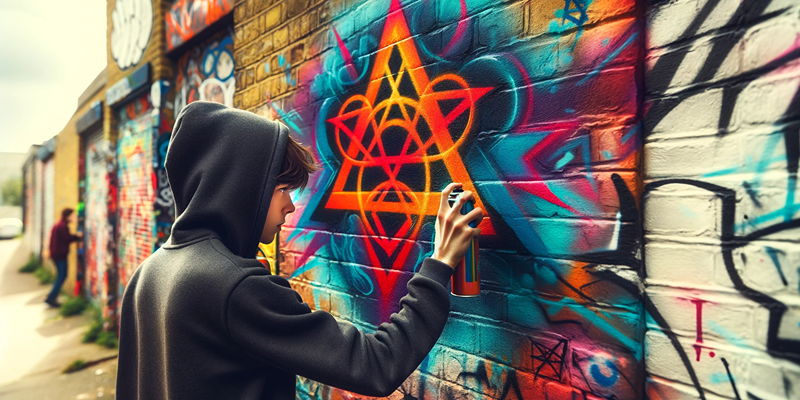
Is Graffiti Considered Vandalism?
Yes, in Arizona, graffiti is considered a form of vandalism.
The act of drawing, inscribing, or tagging on public or private property without permission falls under the definition of criminal damage as outlined in A.R.S. § 13-1602.
Graffiti can range from small, simple markings to elaborate murals, but regardless of the scale or artistic value, it's deemed illegal if it's done without the property owner's consent.
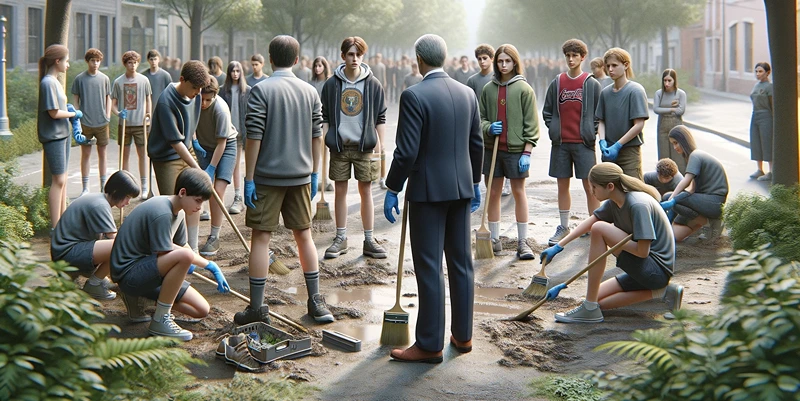
Consequences of a Juvenile Vandalism Charge
The consequences of a juvenile vandalism charge in Arizona can be quite serious and may include:
- Restitution: The juvenile may be required to pay for the damages caused.
- Probation: The court may place the juvenile under supervision.
- Diversion Programs: In some cases, juveniles may be allowed to participate in diversion programs that focus on rehabilitation.
- Detention: For more severe cases, or if the juvenile has a prior record, the court may order detention in a juvenile facility.
It's important for juveniles and their guardians to understand that even though the juvenile justice system emphasizes rehabilitation over punishment, the repercussions can still be profound and lasting.
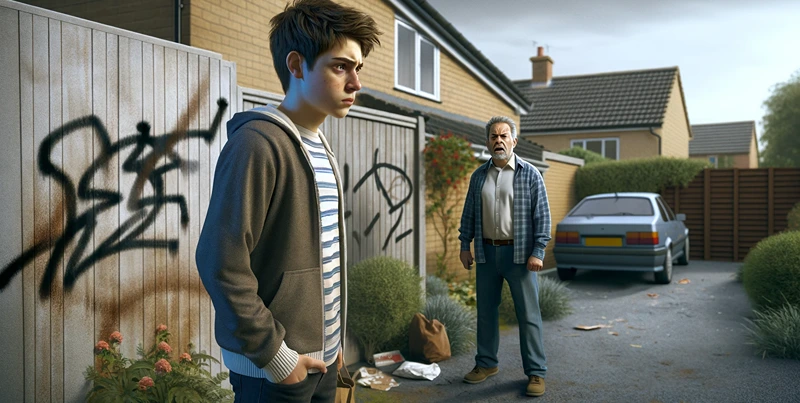
What If I Accidentally Vandalized Someone's Property
According to A.R.S. § 13-1602, criminal damage involves intentional or reckless property damage. However, accidental damage, lacking intent or recklessness, may not fit this definition.
The primary defense in these cases is proving the lack of intent, using evidence such as witness statements or surveillance footage.
Despite potential avoidance of criminal charges, civil liability can still arise, with the property owner possibly seeking compensation. Direct restitution negotiations with the property owner can often be a practical solution, avoiding further legal disputes. It's important to consider the role of insurance, as some policies might cover accidental damages.
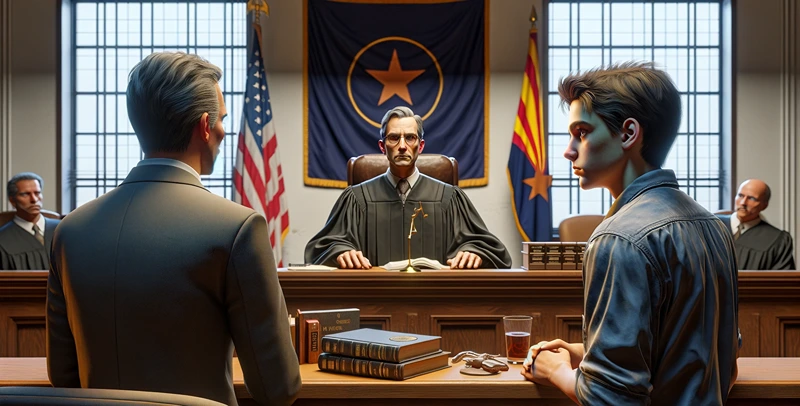
How Does the Juvenile Court System Work
The juvenile court system in Arizona is distinct from the adult criminal justice system. Its primary focus is on rehabilitation rather than punishment, aiming to integrate the juvenile back into society as a productive and law-abiding citizen.
Key aspects of the juvenile court system include:
- A focus on the best interests of the minor.
- Proceedings that are more informal than adult court.
- Less emphasis on the adversarial system, with a greater focus on finding a solution that aids in the juvenile's rehabilitation.
When a juvenile is charged with vandalism, the case is handled by the juvenile court, where the judge has the discretion to order various interventions, including counseling, community service, probation, or, in more serious cases, placement in a juvenile detention facility.
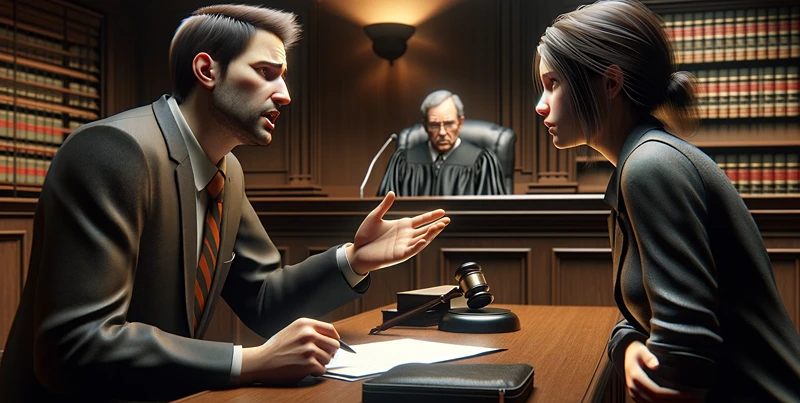
Defense Strategies for Juvenile Vandalism Cases
When addressing juvenile vandalism cases in Arizona, employing effective defense strategies can help mitigate the potential consequences young offenders may face.
Here are key defense strategies typically considered in juvenile vandalism cases:
Lack of Intent
Demonstrating that the juvenile lacked the intent to commit vandalism can be a compelling defense. This argument is particularly relevant if the incident occurred accidentally or if the juvenile was unaware that their actions would cause damage.
Mistaken Identity
In some cases, a juvenile may be wrongfully accused due to mistaken identity. This defense involves proving that the accused was not involved in the vandalism act, using alibis, witness testimony, or surveillance footage.
Influence of Peers or Adults
Highlighting the role of peer pressure or the influence of adults can be a significant factor in defense. This strategy focuses on showing that the juvenile was coerced or influenced by others, which can impact the court's perception of the juvenile’s culpability.
.
Parental or Guardian Consent
- If the act of vandalism was committed under the belief that there was consent from a property owner, this could be used as a defense. For instance, if a juvenile painted graffiti on a wall believing it was a permissible art project encouraged by a parent or guardian.
- If the act of vandalism was committed under the belief that there was consent from a property owner, this could be used as a defense. For instance, if a juvenile painted graffiti on a wall believing it was a permissible art project encouraged by a parent or guardian.
Restitution and Remediation
Willingness to make restitution can be a powerful strategy. This can include financial compensation for the damage or voluntary community service. Demonstrating remorse and a commitment to remediation can influence the court's decision, particularly in a system geared towards rehabilitation.
Challenging the Evidence
Defense attorneys might scrutinize the evidence presented by the prosecution. This includes questioning the reliability of eyewitness testimonies, the validity of photographic or video evidence, or the valuation of damaged property.
Mitigating Circumstances
Presenting mitigating circumstances such as the juvenile's background, mental health status, or family situation can be crucial. This approach aims to provide a broader context for the juvenile’s actions, potentially leading to a more lenient outcome.
Seeking Alternative Resolutions
Exploring alternative resolutions such as diversion programs, mediation, or counseling can be an effective strategy. These alternatives focus on rehabilitation rather than punitive measures, aligning with the philosophy of the juvenile justice system.
In Arizona, where the juvenile justice system emphasizes rehabilitation, these defense strategies are not just about avoiding conviction; they are also about ensuring that the young individual receives the appropriate guidance and support to prevent future incidents.
Each case is unique, and a skilled defense attorney will tailor these strategies to the specific circumstances of the juvenile involved.
Frequently Asked Questions
- What are the common penalties for a juvenile vandalism offense in Arizona?
- The penalties for a juvenile vandalism offense can vary depending on the value of the property damaged and the circumstances of the crime. They may include fines, restitution, community service, informal probation, or in more severe cases, time in a juvenile detention center. Arizona law takes into account the age of the offender and the value of the property damaged when determining penalties.
- How does a defense attorney help if my child has been charged with vandalism?
- A defense attorney who has experience in juvenile criminal defense can provide legal counsel just as adults receive. They can evaluate the case, develop a defense strategy, and negotiate with prosecutors, possibly even working to drop the charges or reduce penalties. The attorney-client relationship ensures that your child's legal rights are protected throughout the process.
- What rights do juvenile offenders have when facing vandalism charges?
- Juvenile offenders have the right to legal representation, the right to a hearing, and the right to present a defense. They also have the right to remain silent and the right to have a parent or guardian present during questioning.
- Can a judge impose a fine for juvenile vandalism offenses?
- Yes, a judge may impose a fine as part of the penalties for a juvenile vandalism offense. The fine amount typically depends on the severity of the vandalism, the value of the property damaged, and the juvenile's prior record, if any.
- What factors influence the severity of penalties in juvenile vandalism cases?
- Factors that influence penalties include the age of the juvenile offender, the value of the property damaged, the extent of damage to the property, any prior criminal record, and the circumstances under which the vandalism occurs. The judge may also consider the juvenile's attitude and willingness to comply with specific terms set by the court.
- Is vandalism considered a felony for juveniles?
- In Arizona, vandalism may be classified as felony vandalism if the value of the property damaged is above a certain threshold or if the crime involves other aggravating factors. Felony vandalism is a more severe consequence of a juvenile crime and can lead to harsher penalties, including longer periods in juvenile detention.
Remember, each case is unique, and legal outcomes can vary. For specific legal advice regarding a juvenile vandalism offense, it's best to consult directly with a knowledgeable criminal defense lawyer who can provide personalized guidance and support.
How a Criminal Defense Attorney Can Help
Kolsrud Law Offices offers expert legal assistance in juvenile vandalism cases. Their team thoroughly understands Arizona's juvenile laws and provides comprehensive representation throughout the legal process. They excel in evaluating evidence, negotiating with prosecutors, and exploring various defense strategies tailored to each case.
Beyond legal representation, they offer guidance and support to families. In cases of conviction, they advocate for lenient sentencing or alternative options. Kolsrud Law Offices also provides a free initial consultation, allowing families to discuss their situation without financial commitment. To discuss your case, and explore your options. Give us a call at 602) 638-3790.
An award-winning criminal defense attorney Since 2006
Why Choose Josh Kolsrud
With over 100 trials to his name, and years of experience as a state and federal prosecutor, Josh understands the law, the legal process, and your rights. Josh is also committed to representing every client with utmost integrity and dedication
Experience
Josh has prosecuted major crimes on the state and federal level, led a successful anti-human sex trafficking operation that saved lives, and argued before countless juries and justices for his clients
Expertise
Josh is an expert in both Arizona and federal criminal law, and is ready to put that expertise to work for you.
Dedication
As a prosecutor, Josh saw far too many defendants lose their livelihood due to poor representation. Josh will always give every client his complete attention and effort
Get a Free Initial Consultation:
Complete our form below to get a free case review.
or call us at (480) 999-9444.
